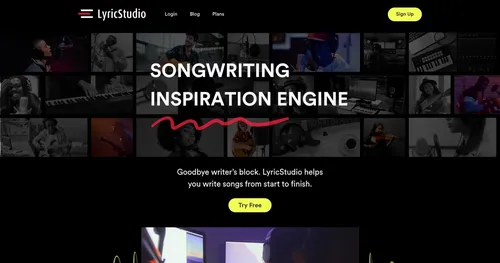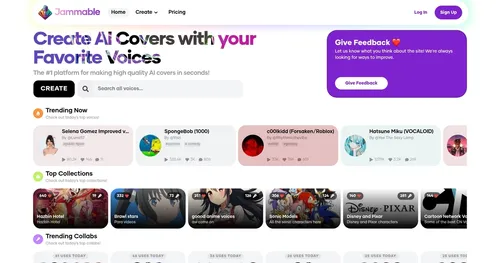Music Muse

I’m no musician, but I spent a morning tinkering with Music Muse, and let me tell you, it’s like having a creative genie in a bottle. You whisper your musical wishes — maybe a jazzy beat for a podcast intro or a cinematic instrumental for a short film — and poof, it’s done. I typed in “upbeat pop song about summer vibes, 120 BPM, with guitar riffs,” and in under a minute, I had a track that sounded like it could back a sunny TikTok montage. The process felt like magic, though I’ll confess, I was skeptical about whether an AI could really nail it.
The interface is straightforward, almost too simple, with a text box for prompts and a few sliders for tweaking. I love how it doesn’t bog you down with technical jargon. The AI’s ability to interpret mood is uncanny — my summer track had just the right dose of breezy energy. The Mixing and Mastering feature automatically polishes your track, balancing levels so it sounds studio-ready. I compared it to Suno AI, which I’ve also dabbled with, and Music Muse felt snappier, especially for quick turnarounds. AIVA is another competitor, but it leans more toward classical compositions, which might not suit everyone.
That said, my tracks weren’t perfect. The pop song was catchy but felt like it could’ve come from any generic playlist. I tried a second prompt for a ‘gothic rock ballad,’ and while the mood was close, it lacked the raw edge I wanted. The free plan’s generation limit hit me faster than expected, which pushed me to consider the premium tier. Pricing seems reasonable compared to others, but you’ll want to check their site for details. Oh, and the export process was smooth, but I wish there were more format options beyond MP3.
The real surprise? How fun it was to experiment. I felt like a kid playing with a new toy, tweaking prompts to see what the AI would spit out. For anyone dipping their toes into music creation, start simple: describe a clear mood and genre, and let Music Muse do the heavy lifting. If you need a quick track for a project, it’s a lifesaver. Just don’t expect it to replace a human composer for deeply personal work.
What are the key features? ⭐
- Instant Track Generation: Creates complete songs from text prompts in seconds.
- Lyric-to-Symphony: Analyzes lyrics to produce matching melodies and arrangements.
- Multi-Genre Support: Supports diverse genres like pop, classical, lo-fi, and more.
- Automatic Mixing and Mastering: Polishes tracks for studio-quality sound.
- Full Ownership: Grants users complete intellectual property rights over creations.
Who is it for? 🤔
Examples of what you can use it for 💭
- YouTuber: Generates background music for video intros to enhance viewer engagement.
- Podcaster: Creates custom jingles for podcast episodes with specific moods.
- Indie Game Developer: Produces atmospheric soundtracks for game levels.
- Small Business Owner: Crafts branded music for advertisements or social media.
- Hobbyist Musician: Experiments with song ideas without needing production skills.
Pros & Cons ⚖️
- Full ownership of tracks
- Wide genre variety
- Free plan available
- Tracks can feel repetitive
- Limited free plan generations
FAQs 💬
Related tools ↙️
-
Artlist Provides royalty-free music, SFX, footage, and AI tools for video creators
-
 LyricStudio
Helps musicians complete song lyrics when they get stuck - a songwriting inspiration engine
LyricStudio
Helps musicians complete song lyrics when they get stuck - a songwriting inspiration engine
-
TwoShot Turn ideas into music using AI-powered sampling and remixing tools
-
Rotor Creates music, lyric, and promo videos quickly using AI-driven editing
-
 Jammable
Create AI covers with AI voice models of your favorite voices
Jammable
Create AI covers with AI voice models of your favorite voices
-
 MixAudio
Generates AI-powered music tracks, remixes, and radio from text or audio inputs
MixAudio
Generates AI-powered music tracks, remixes, and radio from text or audio inputs

